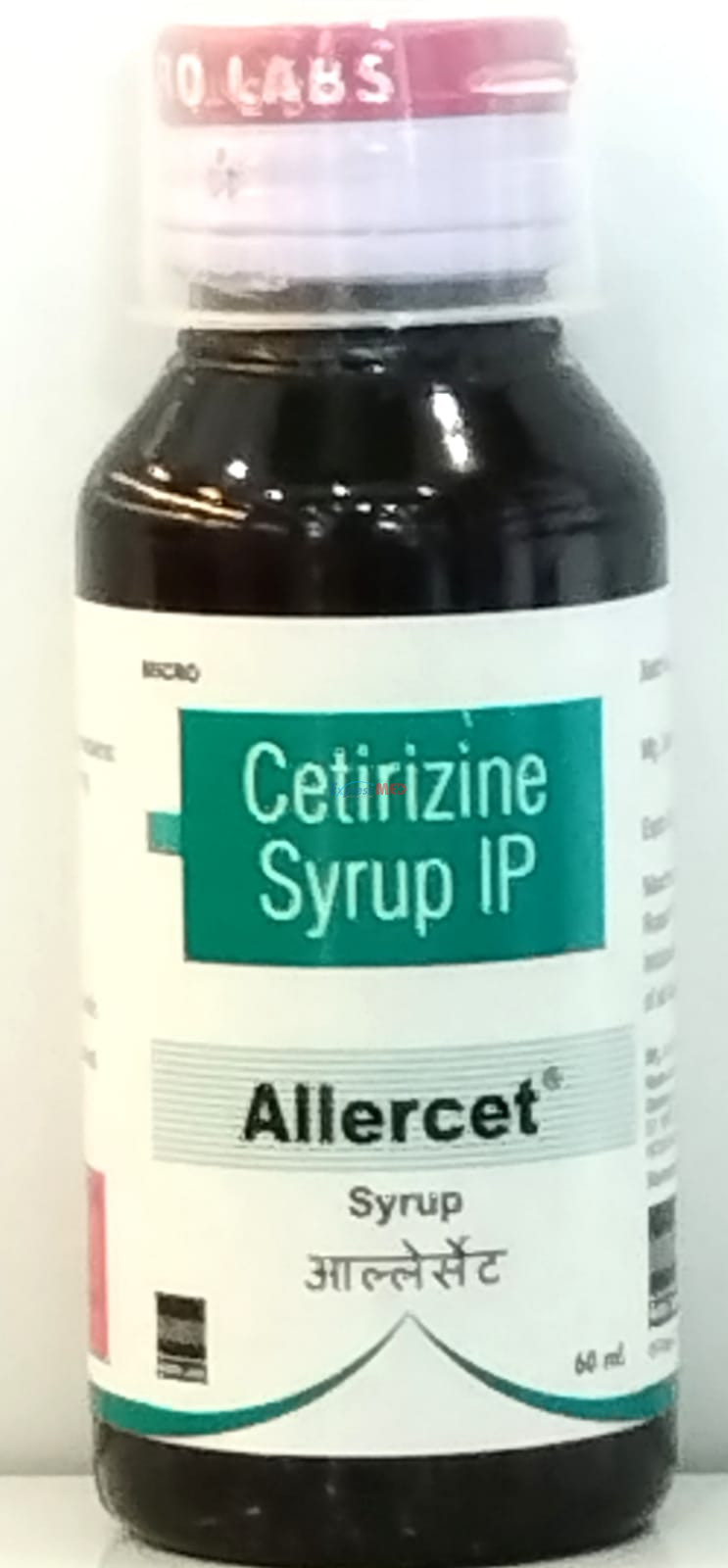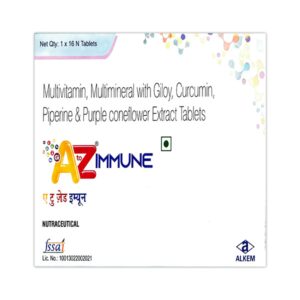Product Introduction:
Allercet Syrup is a medication containing the active ingredient Cetirizine (5mg/5ml). It is formulated as a syrup for ease of administration, particularly in pediatric patients. Allercet Syrup is commonly prescribed for the treatment of allergic conditions such as allergic rhinitis (hay fever), allergic conjunctivitis, and chronic idiopathic urticaria (hives) in both children and adults.
Give this medicine to your child orally with or without food in the dose, time, and way prescribed by your child’s doctor. It could either be prescribed alone or in combination with other medicines. The allergic symptoms may subside after your child has taken the initial few doses of Allercet Syrup. In case of serious allergic conditions, your child may have to continue taking the medicine for a week or two. If your child vomits within 30 minutes of taking this medicine, repeat the same dose after your child feels better. But, refrain from doing so if it is already time for the next dose.
Your child may experience mild side effects like nausea, vomiting, dry mouth, dizziness, sleepiness, and headache after taking this medicine. These symptoms are usually non-serious and disappear on their own. However, in case of prolonged or bothersome events, it would be best to consult your child’s doctor without any delay.
Inform your child’s doctor if your child is on any medicines or is allergic to any medicine, product, or food. Do inform the doctor if your child has or had any heart, liver, kidney problems or was born prematurely. Share any history regarding bowel obstruction, malnutrition, weight-related issues, and thyroid problems with the doctor. Knowledge of your child’s medical history will help avoid any complications in the treatment and guide your child’s doctor to plan your child’s overall treatment better.
Benefits:
- Relief from Allergic Symptoms: Allercet Syrup provides effective relief from symptoms associated with allergic conditions, including sneezing, runny or itchy nose, itchy or watery eyes, and skin itching or hives.
- Non-Sedating: Cetirizine, the active ingredient in Allercet Syrup, has a low potential for causing drowsiness or sedation compared to first-generation antihistamines, allowing for daytime use without significant impairment of cognitive or motor functions.
- Liquid Formulation: Allercet Syrup is presented in a liquid form, making it easier for children and adults to take and ensuring accurate dosing.
Side Effects:
Common side effects of Allercet Syrup may include:
- Headache
- Fatigue
- Dry mouth
- Nausea
- Drowsiness (less common compared to first-generation antihistamines)
Less common but more severe side effects may include:
- Allergic reactions
- Palpitations or increased heart rate
- Urinary retention (difficulty urinating)
- Liver problems (rare)
Usage Guidelines:
- Dosage: The recommended dosage of Allercet Syrup is usually based on the age and weight of the patient, as determined by the healthcare provider. It is typically administered once daily, preferably in the evening for optimal relief from allergic symptoms.
- Administration: Use the provided measuring device to ensure accurate dosing. Shake the syrup bottle well before each use. Administer the syrup directly into the mouth or mix it with a small amount of water or juice.
- Duration: Follow the prescribed course of treatment as directed by the healthcare provider. Do not discontinue the medication abruptly without consulting the healthcare provider.
- Special Populations: Dosage adjustments may be necessary for individuals with renal impairment or hepatic dysfunction. Consult a healthcare professional for appropriate dosing in such cases.
Drug Interactions:
- CNS Depressants: Concurrent use of Allercet Syrup with central nervous system (CNS) depressants such as sedatives or alcohol may potentiate the sedative effects, leading to increased drowsiness or impairment of cognitive and motor functions.
- Cimetidine: Cimetidine may increase the blood levels of Cetirizine, potentially leading to an increased risk of adverse effects.
- Erythromycin or Ketoconazole: These medications may increase the blood levels of Cetirizine, prolonging its action and potentially increasing the risk of side effects.
Before initiating treatment with Allercet Syrup, inform the healthcare provider about all prescription, over-the-counter, and herbal medications the patient is currently taking to avoid potential drug interactions.
SAFETY ADVICE

Kidney

Liver
However, dose adjustments are required in severe liver disease. Consult your doctor before giving Cetirizine to your child in case of severe liver disease.
| Weight | 0.5 kg |
|---|---|
| Dimensions | 10 × 10 × 10 cm |




